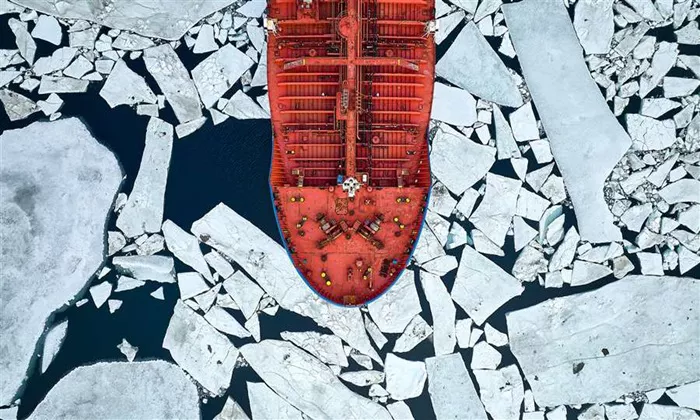The 82nd session of the International Maritime Organization’s (IMO) Marine Environment Protection Committee (MEPC 82) is set to convene from September 30, 2024, at the IMO headquarters in London, England. This pivotal meeting will focus on a wide range of environmental protection measures concerning the maritime industry, with particular emphasis on pollution prevention and mitigation efforts in the Arctic.
In anticipation of this session, the Clean Arctic Alliance—a coalition of 23 nonprofit organizations dedicated to Arctic preservation—held a webinar to outline critical environmental issues related to the maritime sector’s impact on the region. The webinar provided vital insights into the agenda for MEPC 82 and its implications for maritime operations in the Arctic.
Tackling Black Carbon Emissions
Bill Hemmings, an advisor to the Clean Arctic Alliance with expertise in black carbon emissions, highlighted that the MEPC will review regulations concerning these emissions in the Arctic for the 21st time since establishing a workplan on the matter in 2011. Hemmings expressed frustration over the lack of concrete reduction measures after 13 years of discussions.
“Ship traffic is expanding rapidly in the Arctic, with numerous large vessels—including tankers, bulkers, and cargo container ships—burning low-cost residual fuel oil, leading to substantial black carbon emissions, which are among the most powerful short-lived climate pollutants,” Hemmings remarked.
He emphasized that ships operating in the Arctic could significantly reduce black carbon emissions by transitioning to cleaner marine distillate fuels, which are already in use worldwide and, in some instances, mandated.
In late 2021, the MEPC adopted a resolution urging member states and shipping operators to voluntarily switch to these cleaner fuels to mitigate black carbon emissions in the Arctic. “The climate benefits of reduced black carbon can be observed within days,” Hemmings noted, adding that most smaller fishing vessels in the region have already adopted cleaner distillate fuel.
Hemmings also referenced insights from the marine fuel industry provided to the IMO Sub-Committee on Pollution Prevention and Response in February, suggesting that the use of DMA and DMZ distillate fuels would be beneficial in reducing black carbon emissions in the Arctic.
“Excluding the future use of residual fuels in favor of DMA and DMZ polar fuels will not hinder the current use of alternative low- or zero-carbon marine fuels, including blends of biofuels with distillates or even liquefied natural gas (LNG),” he added.
Emission Control Areas on the Agenda
Addressing the broader emissions associated with maritime shipping, including sulfur oxides (SOx), nitrogen oxides (NOx), and fine particulate matter (PM2.5), Kaare Press-Kristensen, a senior advisor for climate and air quality at Green Global Future, noted that two significant items related to emission control areas (ECA) will be up for discussion at MEPC 82.
The International Convention for the Prevention of Pollution from Ships (MARPOL) defines an ECA as a designated area where specific mandatory emission control measures are implemented to mitigate pollutants such as SOx, NOx, and PM.
Press-Kristensen explained that one key action item will involve formally designating the Canadian Arctic and Norwegian Sea as ECAs, a decision approved in the previous MEPC session and set to take effect on March 1, 2026. Additionally, discussions will explore the potential designation of a North Atlantic ECA.
“If approved, the North Atlantic emission control area will be the largest of its kind geographically, bridging the Canadian, Norwegian, Northern European, and Mediterranean emission control areas,” Press-Kristensen stated.
As the MEPC 82 meeting approaches, the implications for maritime operations in the Arctic and global shipping standards hang in the balance, underscoring the urgent need for effective measures to combat climate change and protect fragile Arctic ecosystems
Related topics:
- Stadler Unveils Innovative RS Zero Prototype at InnoTrans 2024
- Deutz Unveils Hydrogen-Powered Stadler RS Zero Rail Bus Prototype at InnoTrans
- Amogy Launches World’s First Carbon-Free Ammonia-Powered Vessel

